The fall of the Karageorgievichs. The last kings of Serbia and Yugoslavia
In the previous article (Dragutin Dmitrievich and his "Black Hand") we talked about the tragic end stories Serbian princely and royal dynasty Obrenovici. It was also told about the dramatic events of June 11, 1903, when, during a night assault, the rebels led by Dmitrievich-Apis captured the konak (palace) of King Alexander, the last of the Obrenovichi. In addition to the king, his wife Draga, her two brothers, Prime Minister Tsintsar-Markovic and Defense Minister Milovan Pavlovich, General Lazar Petrovich and some other confidants of the monarch were killed. The Minister of Internal Affairs Belimir Teodorovich was seriously wounded. We ended this story with a message about the death of Dragutin Dmitrievich-Apis. Now we will tell you how the history of the royal House of the Karadjordievichs ended.
Pyotr Karageorgievich
After the assassination of Alexander Obrenovic, a representative of a rival dynasty, Peter I Karageorgievich, the grandson of "Black George" was elevated to the throne of Serbia (he was described in the article "The water in the Drina flows cold, and the blood of the Serbs is hot"). He was born on June 29, 1844 - 14 years after the marriage of his parents: Alexander Karageorgievich and Persida Nenadovich.
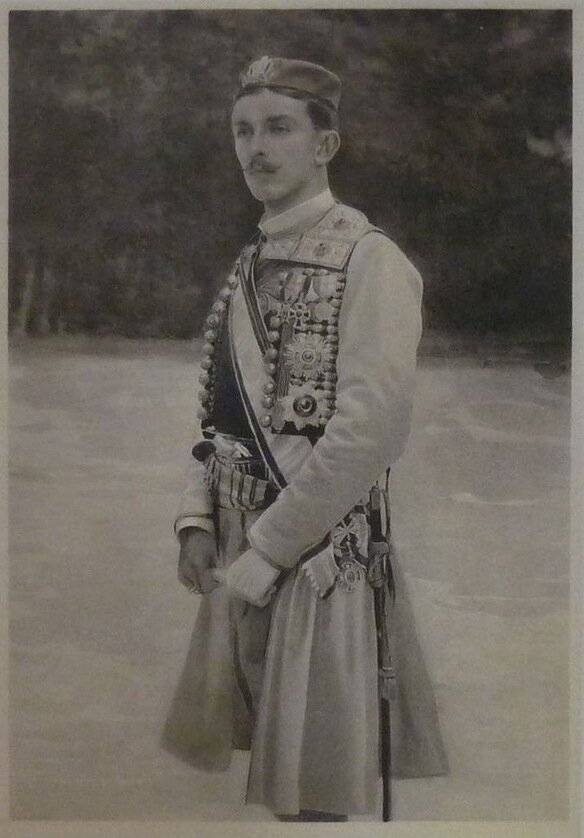
Pyotr Karageorgievich in his youth
By the way, the next son of Persis, Arsen, was born 15 years after the first - in 1859. He served in the cavalry units of the Russian army, took part in the Russo-Japanese and World War I, in 1914 he was promoted to major general. He went down in history as a Serb who received the largest number of awards from the Russian Empire.
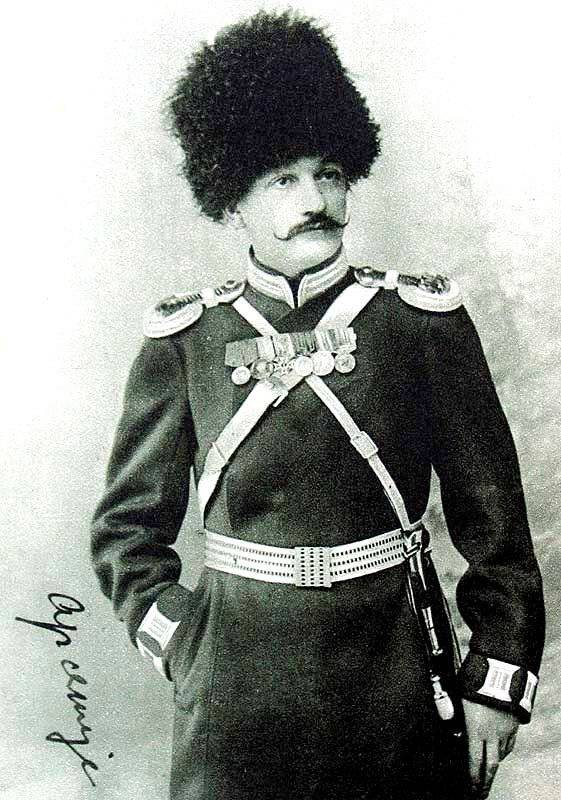
Arsen Karageorgievich
It was his son Pavel (the husband of the Greek princess Olga) who became regent under the underage King Peter II Karageorgievich (on his behalf he ruled the country from October 9, 1934 - March 27, 1941) and concluded a pact with Nazi Germany, which served as the reason for the coup d'etat.
Pyotr Karageorgievich was 14 years old at the time of his expulsion from the country. First, the prince ended up in Wallachia, then in France, where he studied at the famous military academy of Saint-Cyr. Since he was not a citizen of France, in the army of this country he had only one way - to the Foreign Legion. In its composition, Lieutenant Pyotr Karageorgievich took part in the Franco-Prussian War of 1870-1871. and was even awarded the Order of the Legion of Honor for courageous behavior in the Battle of Villersexel - one of the few where the French won then.
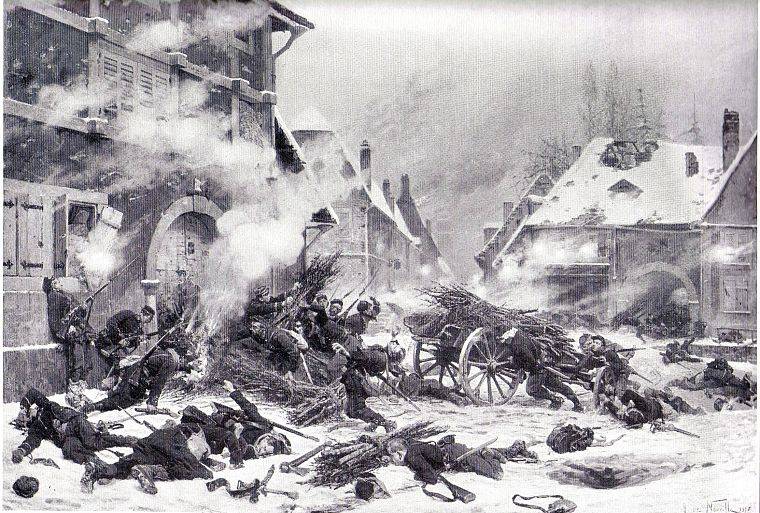
Alphonse de Neuville. "Battle of Villersexel"
Then, under the name of Piotr Markovic (Petar Mrkoњiћ) in 1875, this prince ended up in the Balkans, where an anti-Ottoman uprising began in Bosnia and Herzegovina.
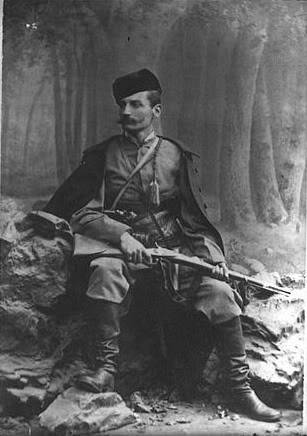
Prince Peter in 1875, Bosnia and Herzegovina
As a volunteer, he also took part in the Serbo-Turkish and the last Russian-Turkish wars. In 1879, on suspicion of plotting the assassination of Alexander Obrenovic, a court in Serbia sentenced him to death in absentia.
In 1883, Peter married Zorka Petrovic, the daughter of the Montenegrin prince Nikola I Njegos (in 1910 he would become the first and last king of Montenegro) and moved to Cetinje. At first, the father-in-law supported Peter's plans to prepare a coup in Serbia, but then abandoned them, deciding that this adventure has little chance of success and better "tit in hand" in the form of good relations with the current Serbian authorities than "pie in the sky". which still needs to be caught. As a result, the offended Pyotr Karageorgievich in 1894 together with his family moved to Geneva, where he lived until the murder of Alexander Obrenovich in 1903. It is curious that at that time this prince made acquaintance with M. Bakunin, and in emigre circles he was even called “ Red Peter ".
In 1899, at the invitation of Nicholas II, Peter's sons George and Alexander (the future king of Yugoslavia), as well as his nephew Pavel (who was destined to become regent under Peter's grandson) arrived in Petersburg and entered the Corps of Pages, founded by the Empress Elizabeth.
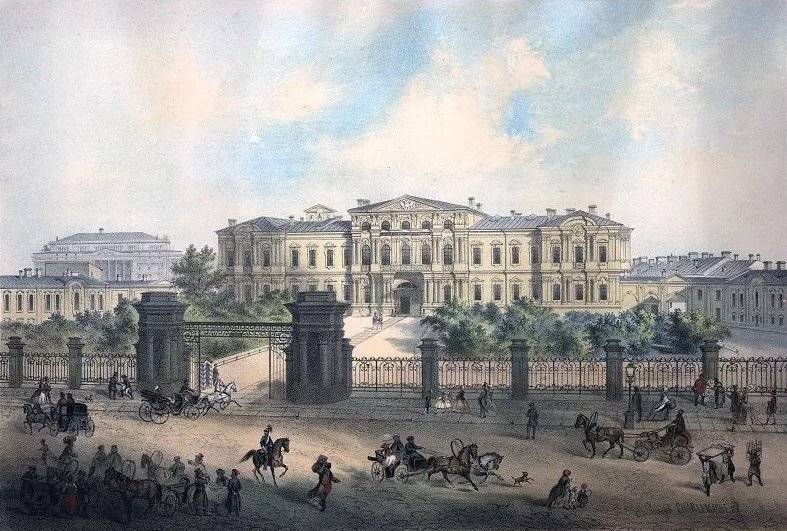
Vorontsov Palace, where the Corps of Pages was located. Lithograph after drawing by I.I.Charlemagne, 1858
At that time, the Corps of Pages was no longer a court school, but a prestigious military school that supplied officers to the elite guards regiments. So the princes of the House of Karageorgievich received the traditional military education for their family. Later, one of them (Peter in 1911) was appointed chief of the 14th Olonets infantry regiment of the Russian army.
At the time of his accession to the throne, Pyotr Karageorgievich was already 59 years old. He was declared King of Serbia on June 15, 1903, and the coronation ceremony took place on September 2 of the same year.
In Serbia, this king became popular due to his liberal views and especially the victories in the I and II Balkan Wars.
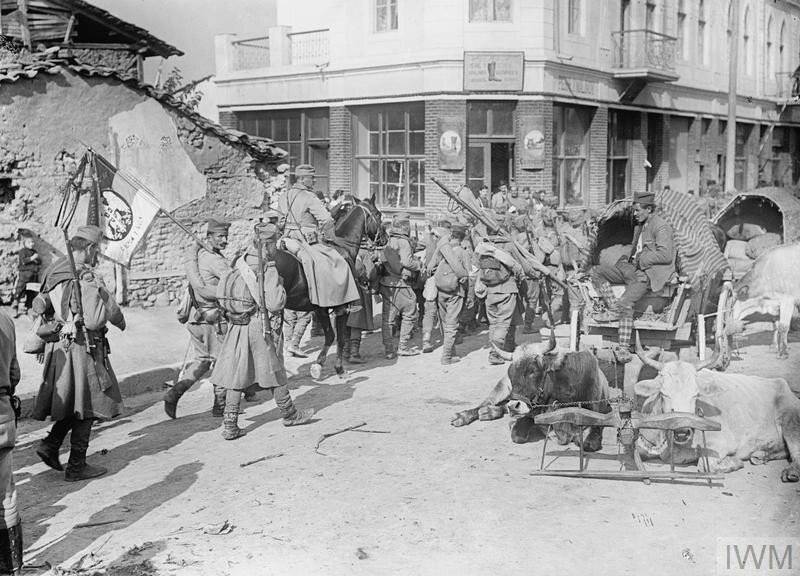
6th Infantry Regiment of the Serbian Army enters Skopje, 26 October 1912
However, the power of Petr Karageorgievich was rather limited. Making decisions, he was constantly forced to look back at the "junta" of Dragutin Dmitrievich "Apis", and after 1909 the youngest son of the king, Alexander, began to exert increasing influence on the country's foreign and domestic policy.
Recall that the eldest son of the king, George, after the murder of a servant in 1909, was deprived of the title of heir, although he retained the title and all the privileges entailed. George, in general, since childhood, was distinguished by a frenzied disposition and uncontrolled behavior. And therefore, Peter Karageorgievich himself told the courtiers that Georgy was his son (meaning the traditional family character traits of the Karageorgievichs), and Alexander was “the grandson of King Nicholas I of Montenegro” (this prince was more flexible, cunning and calculating).
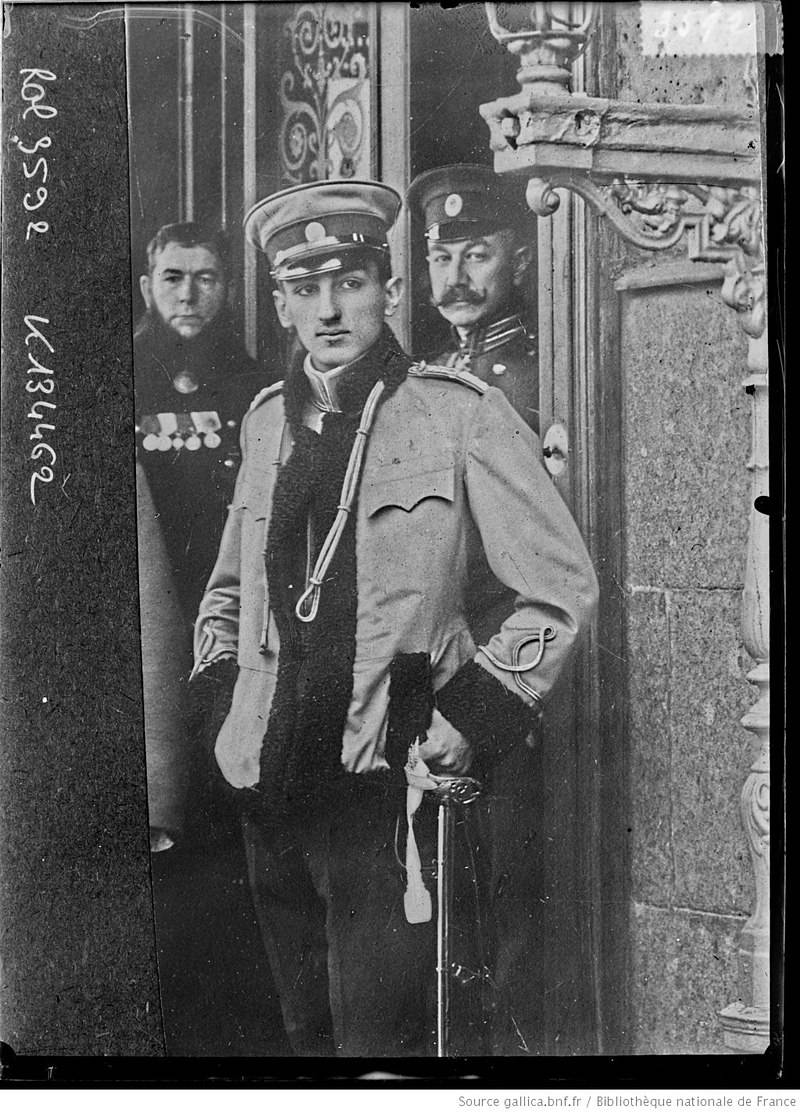
Crown Prince Georgy Karageorgievich, photo of 1908
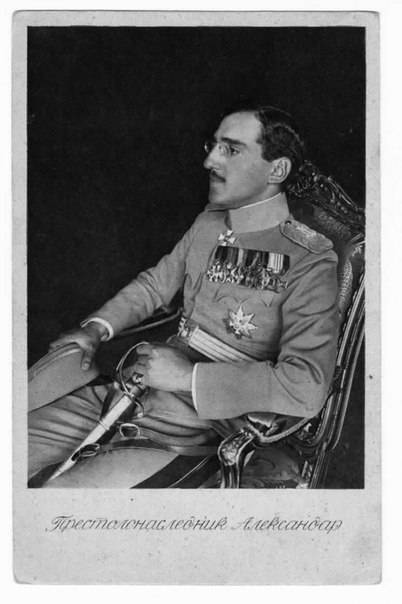
Prince Alexander Karageorgievich
On June 25 (July 8), 1914, in the midst of the crisis, Pyotr Karageorgievich actually renounced power, yielding the throne to his 26-year-old son Alexander, who became regent under his father. Perhaps he was forced into this by his own courtiers, who were already oriented towards the power-hungry heir to the throne.
It was the regent Alexander who did not dare to accept the sixth point of the July ultimatum to Austria-Hungary, which only required admitting the Austrian investigation team to the investigation of the murder of Archduke Franz Ferdinand, since he was not sure that the top leaders of the Serbian army and counterintelligence were not involved in this case.
By that time, Pyotr Karageorgievich, this once gallant prince and king, began to show more and more signs of senile dementia (dementia). He remembered well his young years, but he forgot where he was and what he was doing yesterday, he could shoot a gun, but he was untidy and had difficulties in self-service. He remained almost indifferent during the retreat of the Serbian army to the Adriatic in November-December 1915, when he was taken out of the country on a simple peasant cart drawn by oxen:
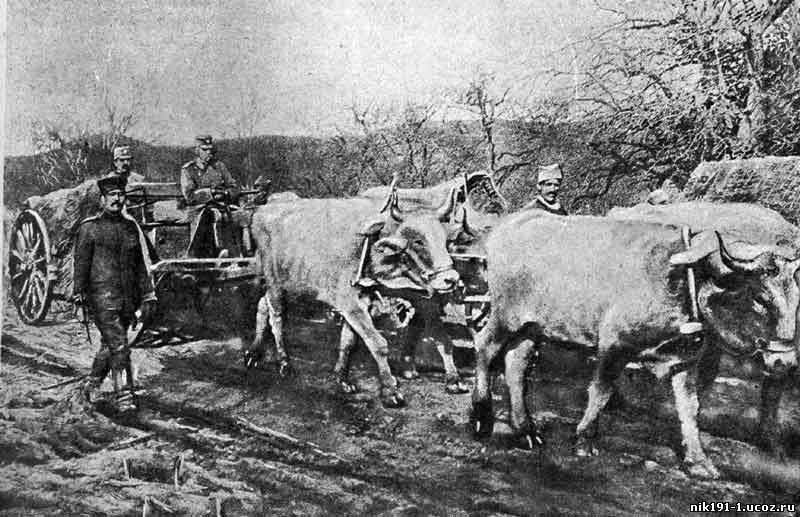
Edmond Rostand wrote about the impression that this photograph made on him:
The eldest son of King Peter, Georgy Karageorgievich, described this sorrowful journey in the book "The Truth About My Life" (1969):
Serbia was then occupied by the troops of Austria-Hungary, Germany and Bulgaria, the army of this country was evacuated to the island of Corfu and to Bizerte. Along with the military units, many civilians then left, tens of thousands of Serbs (both military personnel and civilians) died during this transition from wounds, diseases, cold and hunger. In Serbian historiography, this retreat was called "Albanian Golgotha" ("Albanian Golgotha"). However, the Serbs went not only through Albania, but also through Montenegro. The minimum number of losses incurred then was 72 thousand people, but some researchers increase it more than 2 times, claiming that out of 300 thousand who went on this trip, only 120 thousand reached the Albanian ports of Shkoder, Durres and Vlora.
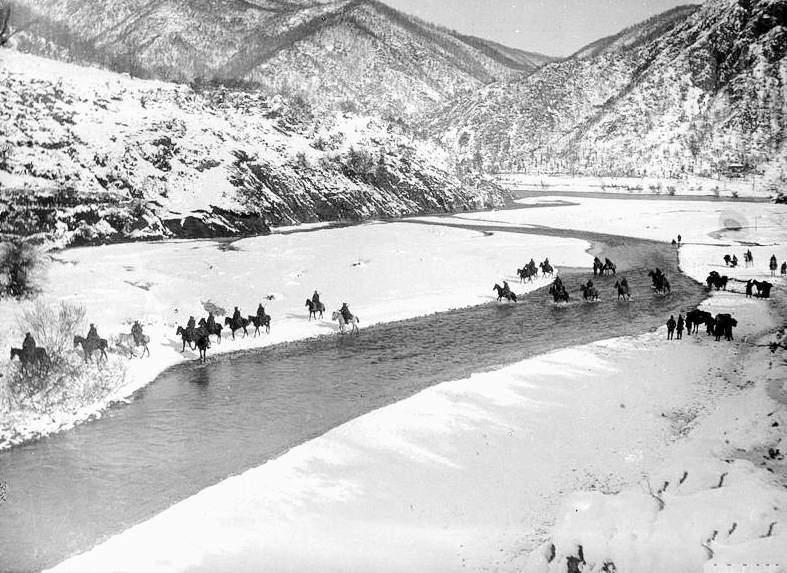
Serbian cavalrymen cross the Drina during their retreat to the Adriatic coast
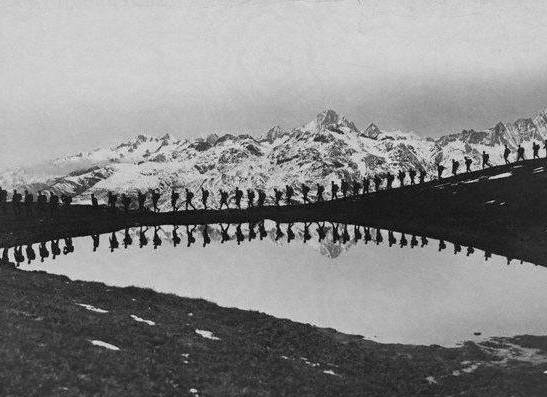
Column of retreating Serbian soldiers, 1915
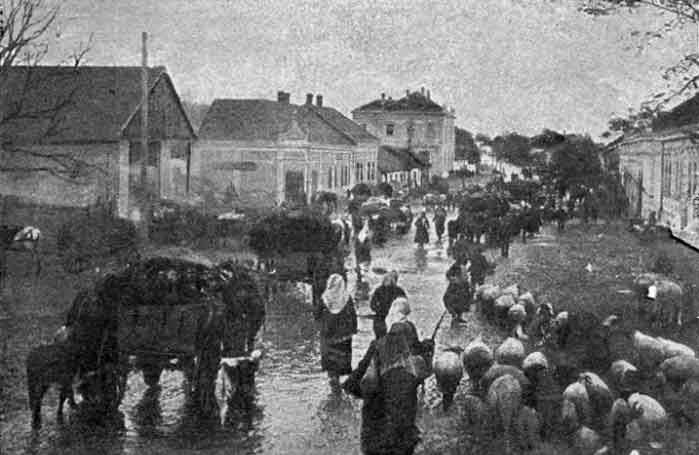
Serbian refugees on their way to the Adriatic
Weakened by the long and difficult road, the Serbs continued to die after the evacuation - in Bizerte and on the island of Corfu. From Corfu, the sick were transported to the island of Vidu near Kerkyra, where about 5 thousand people died. There were not enough places for their burial on land, so the corpses with stones tied to them were thrown into the sea: the coastal waters of Vido in Serbia have since been called the "Blue Tomb" (Plava Tomb).
The last time Petr Karageorgievich was “shown to the public” was on December 1, 1918, during the ceremony of proclaiming the Kingdom of Serbs, Croats and Slovenes. The first king of the future Yugoslavia died on August 16, 1921.
King Alexander Karageorgievich
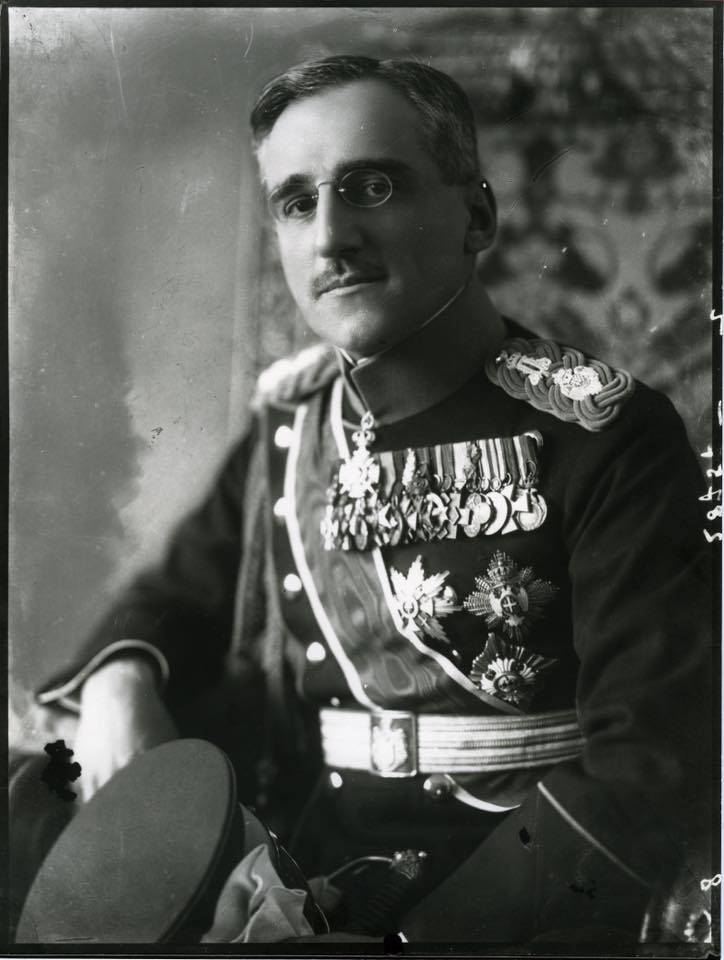
His successor, Alexander, has been acting head of state for 7 years, so nothing has changed since his accession to the throne in Serbia. The new king was the godson of the Russian Emperor Alexander III and a graduate of the St. Petersburg Corps of Pages, during the 1st and 1914nd Balkan Wars he commanded the 1915st Serbian Army. After the end of the Second Balkan War, Alexander was awarded the Serbian Gold Medal of Milos Oblilich and the Russian Order of the Holy Apostle Andrew the First-Called. During World War I, he became commander-in-chief of the Serbian army, received two Russian orders of St. George - IV degree in XNUMX and III degree in XNUMX.
Despite the military disaster at the end of 1915, which ended with the aforementioned "Albanian Golgotha", Serbia, following the results of World War I, was among the victorious powers, annexing the lands of Croatia, Slovenia, Macedonia, Bosnia and Herzegovina and even the formerly independent kingdom of Montenegro to its territory - this is how the “Kingdom of Serbs, Croats and Slovenes” appeared, which later became Yugoslavia.
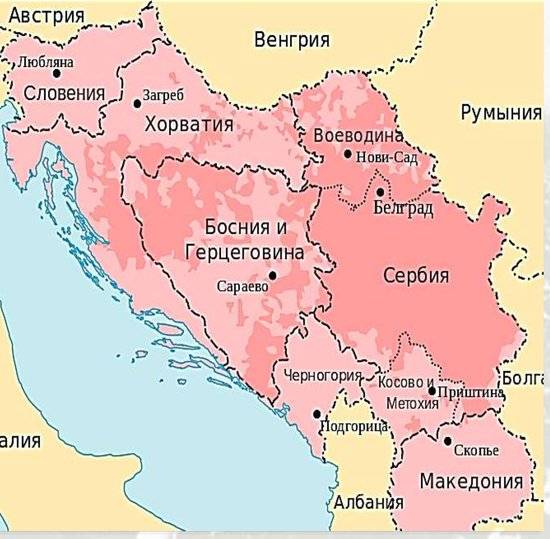
Kingdom of Serbs, Croats and Slovenes
After the defeat in the Civil War, about 20 thousand former subjects of the Russian Empire ended up on the territory of this kingdom, who were evacuated from Odessa in April 1919, Novorossiysk in February 1920 and Crimea in November 1920. These were White Guard soldiers and officers, including Cossacks, civilian refugees, and even 5317 children. The most educated of the former Russians were able to get a job in their specialty: 600 became teachers in various educational institutions, 9 later became part of the local Academy of Sciences. The architects V. Stashevsky and I. Artemushkin were very successful. N. Krasnov, the chief architect of Yalta, whose most famous creation is the famous Livadia Palace, also ended up in Yugoslavia. It was according to his project that the Serbian mausoleum was built on the island of Vido:
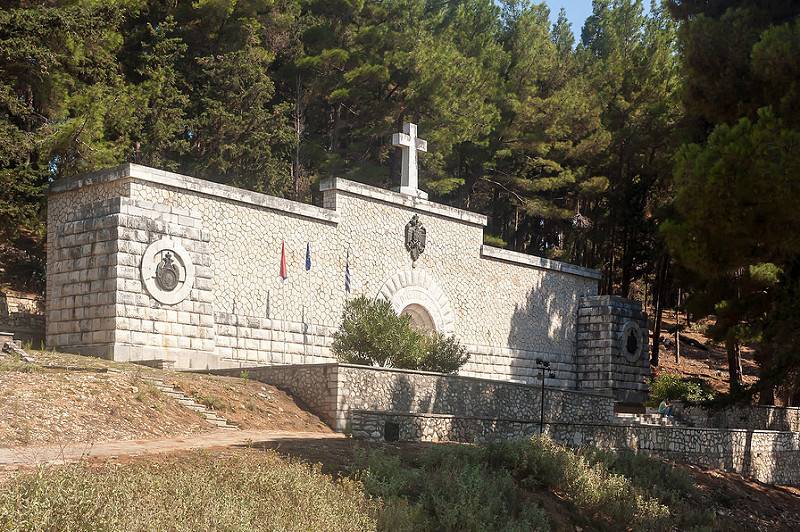
From 1921 to 1944 the administration of the Russian Orthodox Church Outside of Russia was located on the territory of Serbia.
However, the majority of Russian emigrants earned their living "by hand", in particular, many roads in the mountains were laid by their labor.
King Alexander never recognized the Soviet Union, and diplomatic relations with the USSR were established only in 1940 during the regency of his cousin Pavel.
In 1925, by order of Alexander, his elder brother George was isolated in the royal hunting castle, and then placed in a mansion specially built for him on the territory of the Belgrade psychiatric hospital, thus finding himself in the position of the Ottoman shehzade, imprisoned in the golden cage of the cafe. (The cafe was described in the article "Game of Thrones" in the Ottoman Empire. Fatih's law in action and the emergence of cafes).
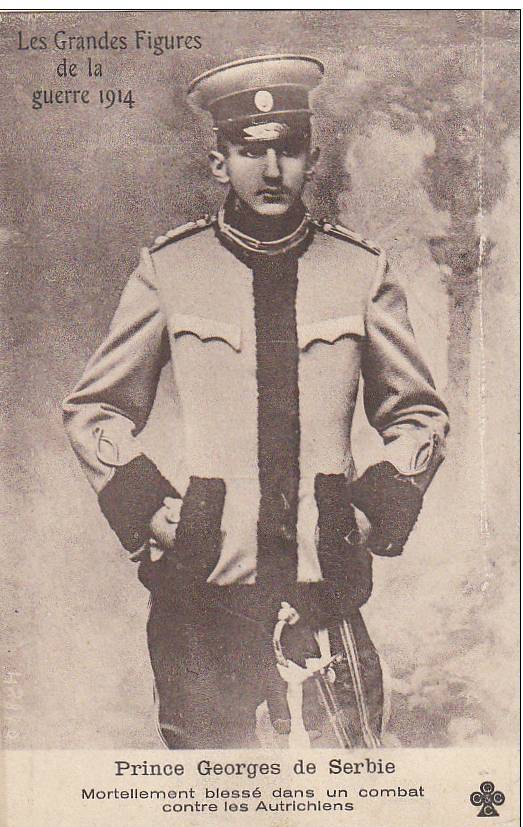
Prince Georgy Karageorgievich, photo of 1914
Here he was "treated" for "schizophrenia with suicidal tendencies", and George was released only after the occupation of Yugoslavia in 1941. As we remember, this prince from childhood was distinguished by a violent disposition and uncontrollable behavior, however, the prince's attending psychiatrist later said that this diagnosis was fabricated by direct order of the king. It is believed that in this way Alexander Karageorgievich cleared the way to the throne for his own son, Peter, who was only 2 years old at the time of George's arrest.
In 1929, Alexander Karageorgievich dissolved the National Assembly (Assembly), becoming practically an autocratic monarch. In an appeal on this matter, he then stated:
Petar Zhivkovic (head of the secret monarchist organization "White Hand", established in May 1912) was appointed Prime Minister of Yugoslavia.
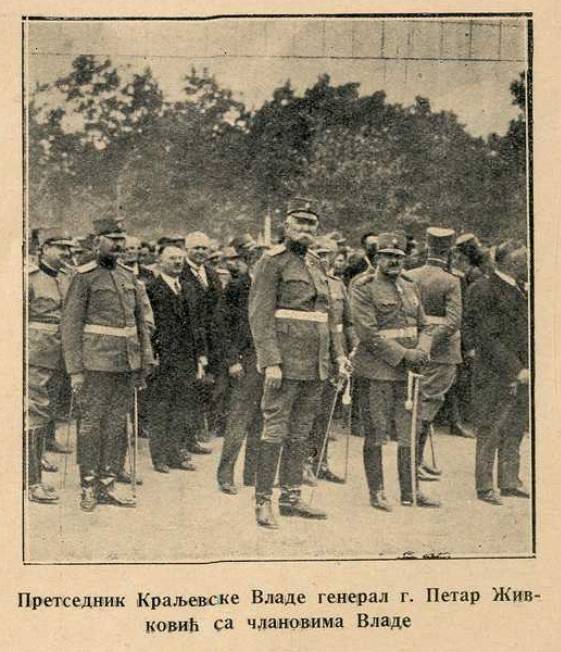
Of course, many in Yugoslavia did not like this.
Fatal Tuesday Karageorgievich
It is said that for a long time Alexander I refused to take part in any public events on Tuesdays on the grounds that three members of his family died on that day of the week. But one Tuesday, October 9, 1934, was an exception to the rule. Ironically, it was on this day that the King of Yugoslavia and French Foreign Minister Louis Bartou died in Marseille.
By the way, on Tuesday, Alexander's son Peter, the last crowned monarch of Yugoslavia, will also die.
For a long time it was believed that both Alexander and Bartu were shot by the militant of the Internal Macedonian Revolutionary Organization Vlado Chernozemsky.
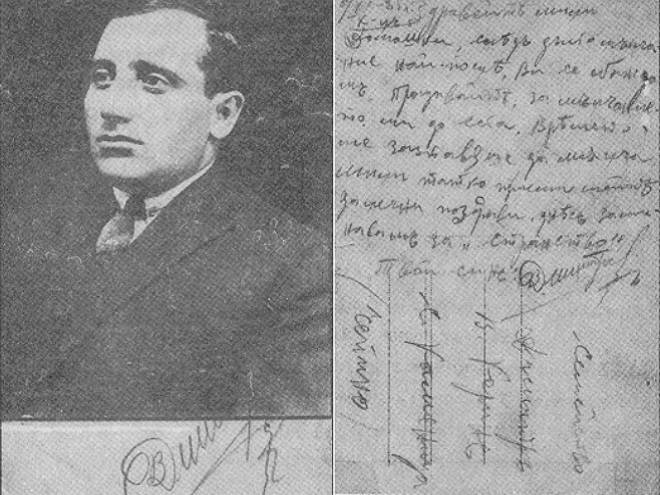
Vlado Cernozemski
However, in 1974, it turned out that Chernozemsky had killed only Alexander, and French policemen shot Minister Barta. The fact is that the forensic medical examination carried out at that time established: the bullet that hit Bartu had a caliber of 8 mm and was used in the service weapon of the guards, while Chernozemsky shot 7,65 mm bullets. And Chernozemsky had no reason to kill Barta: his target was precisely the king, who, since 1929, had acted in Yugoslavia in the spirit of the Italian Duce Mussolini. We can only guess what it was: a tragic accident or the deliberate elimination of a minister who was objectionable to someone? Who had previously achieved an invitation from the USSR to the League of Nations and was preparing a draft treaty, according to which France, Italy and the countries of the Little Entente (Yugoslavia, Czechoslovakia, Romania) undertook to collectively guarantee Austria's independence from Germany.
King Peter II Karageorgievich and regent Pavel
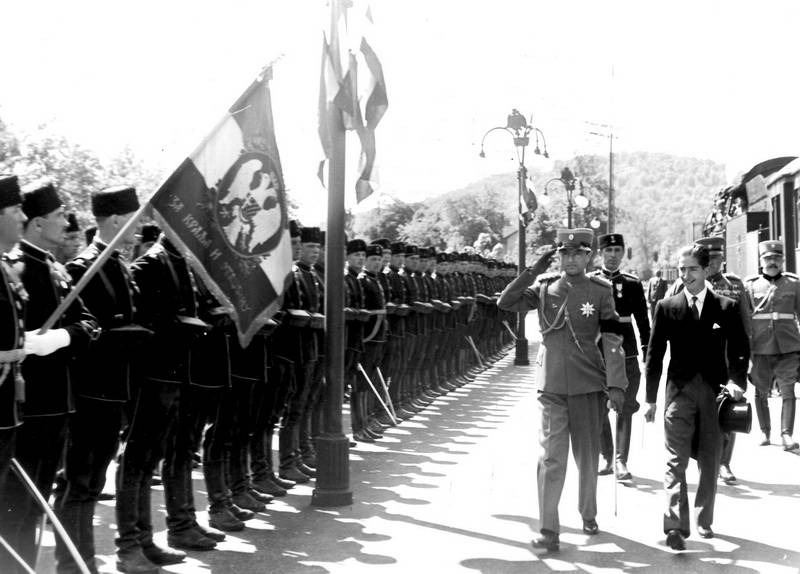
Prince Regent Paul and Peter II at the review of the royal guard
The eldest son of the murdered King Alexander - Peter, was then only 11 years old, at that time he was in Great Britain - he studied at the prestigious Sandroyd School, which is located in Wiltshire.
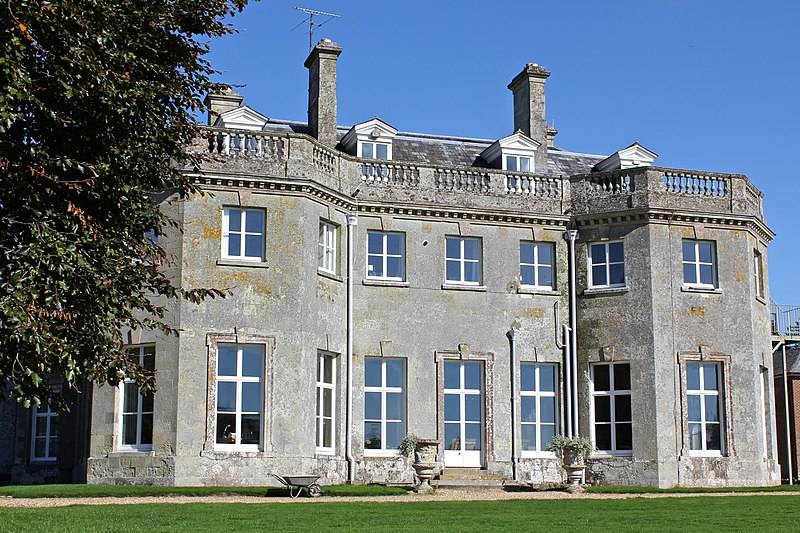
Sandroyd School's main building, currently £ 7 per semester
Having interrupted his studies, Peter returned to his homeland, however, as you understand, he became a purely decorative figure there. The country was ruled by the regent - a cousin of the murdered king Paul, who decided to sign a pact with Germany and her allies.
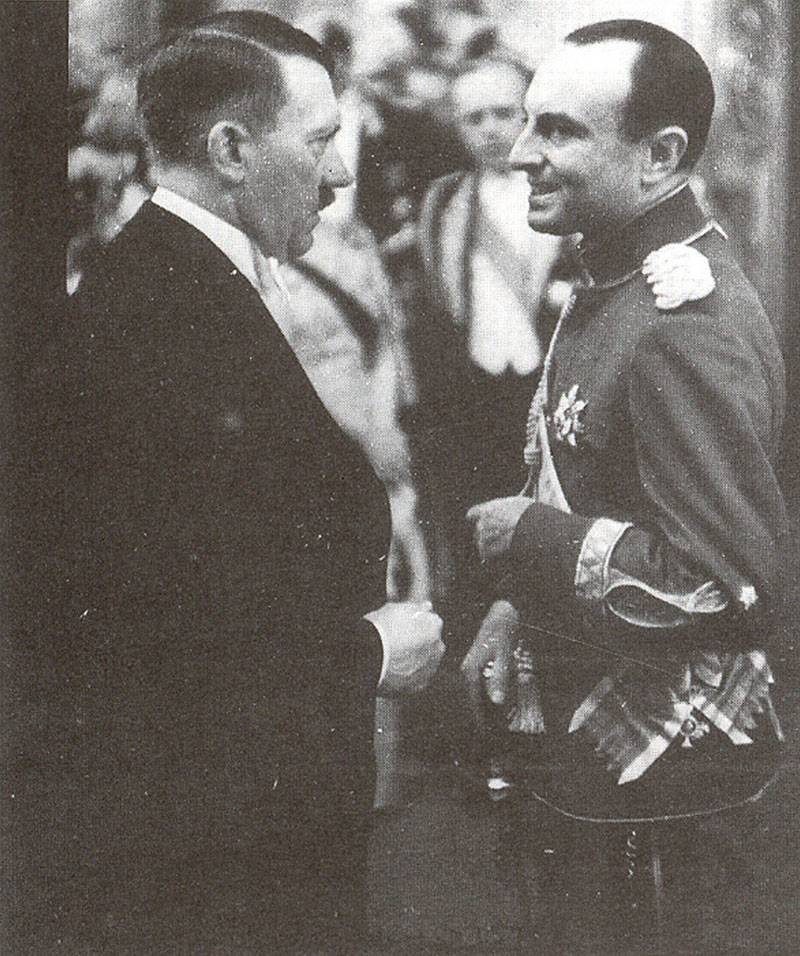
Prince Regent Paul and Adolf Hitler
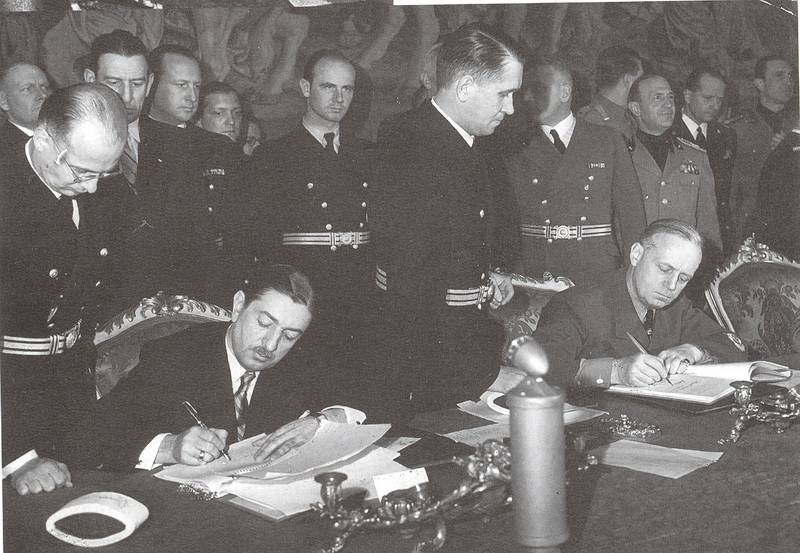
Prince Regent Paul at the ceremony of signing a treaty with Germany and its allies
However, in Serbia of those years, the saying “God is in heaven, and Russia is on earth” was still in use. In March 1941, Pavel was ousted from power by a group of patriotic officers led by General Simonovich. Many of them were members of the secret organization "White Hand" (created on May 17, 1912 by Petar Zhivkovich in opposition to the "Black Hand" Dragutin Dmitrievich - Apis). In 1945, Pavel was completely recognized as a war criminal in Yugoslavia (although he did not take part in the hostilities, after the outbreak of the war he lived in Greece, Cairo, Nairobi and Johannesburg), but in 2011 he was rehabilitated by the Supreme Court of Serbia.
Let's return to Yugoslavia in March 1941. After Pavel was removed from power, Peter II Karageorgievich, who was urgently declared an adult (he was 17 years old at the time), entered into a treaty of friendship with the USSR and after 2 weeks fled from the country, which on April 6 was attacked by the armies of Germany, Italy and Hungary.
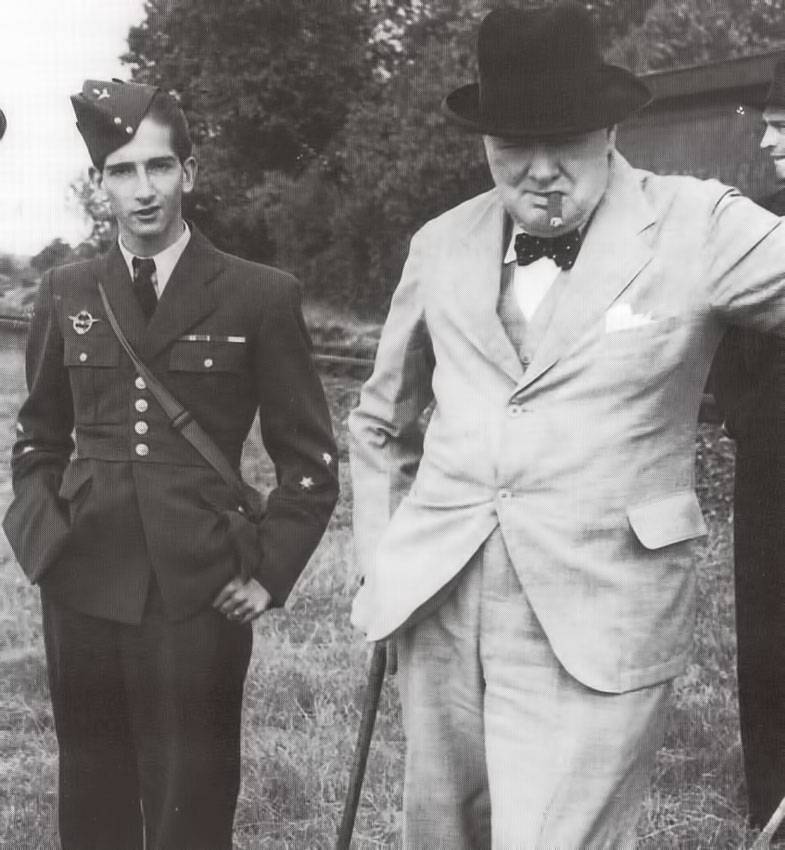
Peter II and Winston Churchill, July 4, 1941
In London, Peter married the Greek princess Alexandra (March 20, 1944), the next year they had a son named Alexander (the house in which the birth took place was declared the territory of Yugoslavia for one day - so that the boy had the right to the throne of this country ). This measure turned out to be superfluous, since on November 29, 1945, Yugoslavia was proclaimed a republic, and after 1991 this country ceased to exist altogether, eventually breaking up into 6 states (not counting Kosovo, which was not recognized by a number of countries).
On this, the story of the kings of Serbia and Yugoslavia, in general, ended. The last crowned monarch, Peter II Karageorgievich, died on November 3, 1970 in Denver, Colorado, at the age of 47 after a liver transplant. At the same time, he went down in history as the only European king (albeit deposed), buried in America (the monastery of St. Sava, located in one of the suburbs of Chicago). The only representative of the House of Karageorgievich, who was allowed to live in socialist Yugoslavia, was a former prisoner of the "cafe" George: apparently, Tito and his associates appreciated the refusal of this prince to become king of Serbia after its occupation in 1941. In 1969, in Belgrade, even a book of George's memoirs "The Truth About My Life" ("The Truth About My Belly") was published, an excerpt from which was quoted in this article. He died without leaving children in 1972.
The next article titled “Montenegrins and the Ottoman Empire»Will tell about the Ottoman period in the history of this Balkan country.
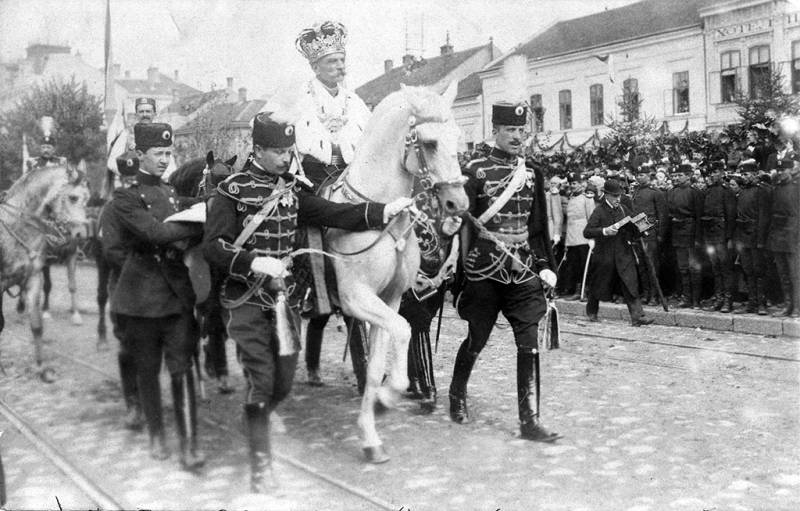
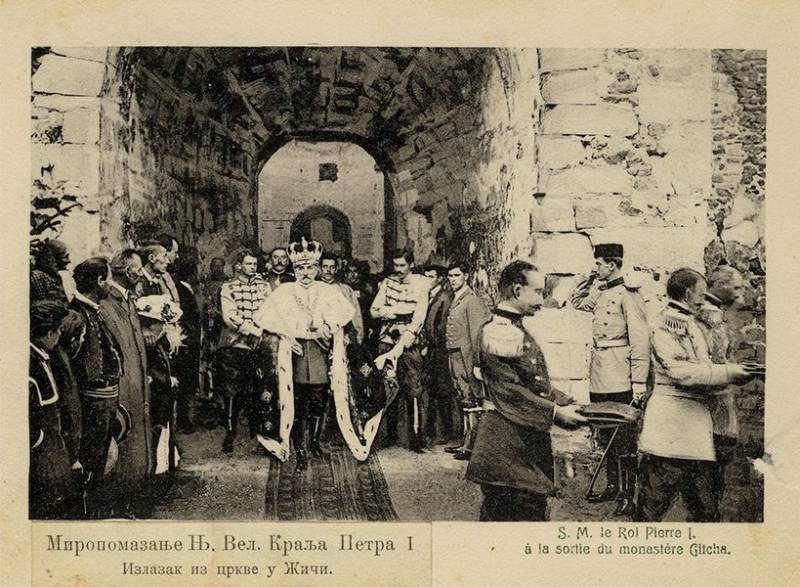
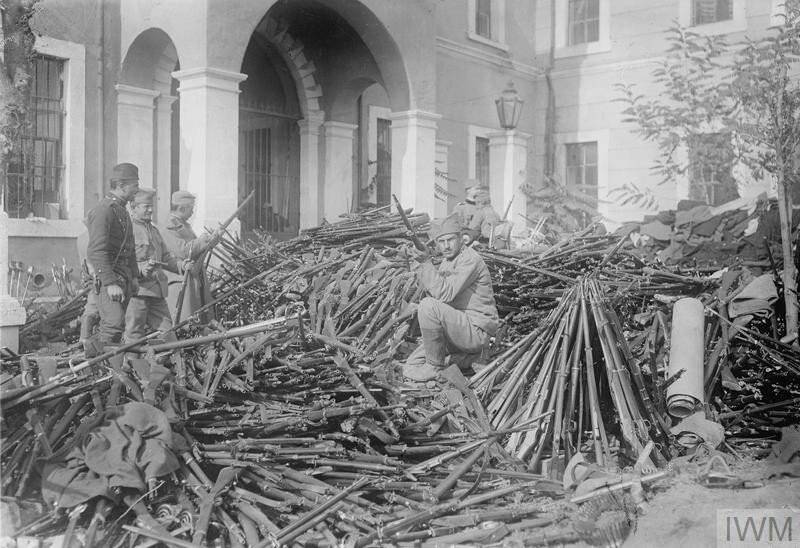
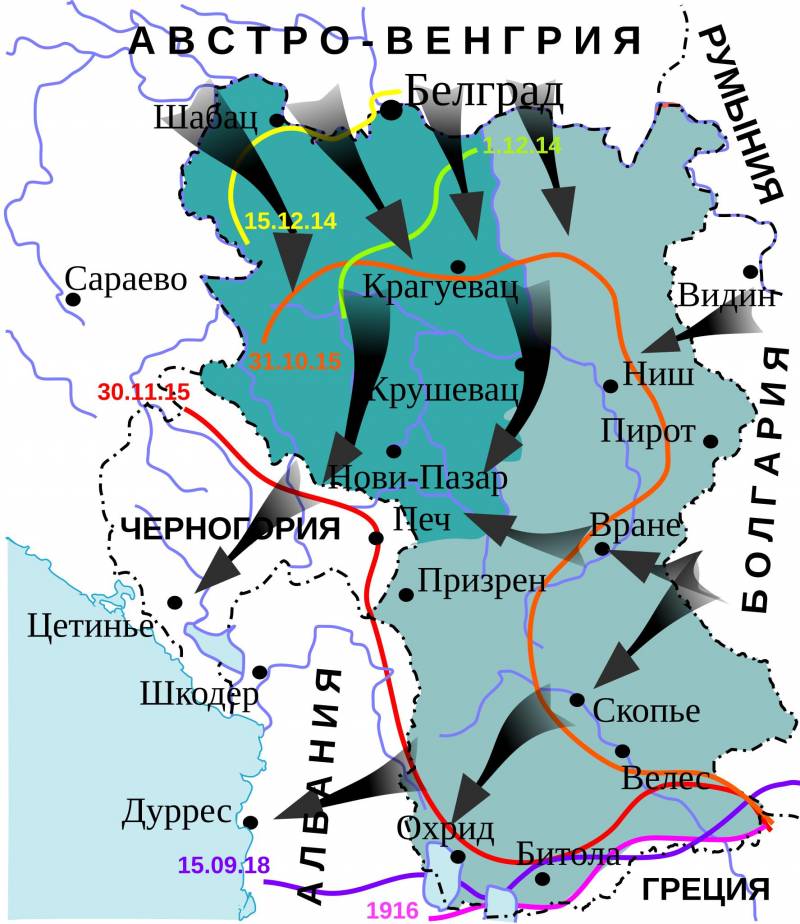
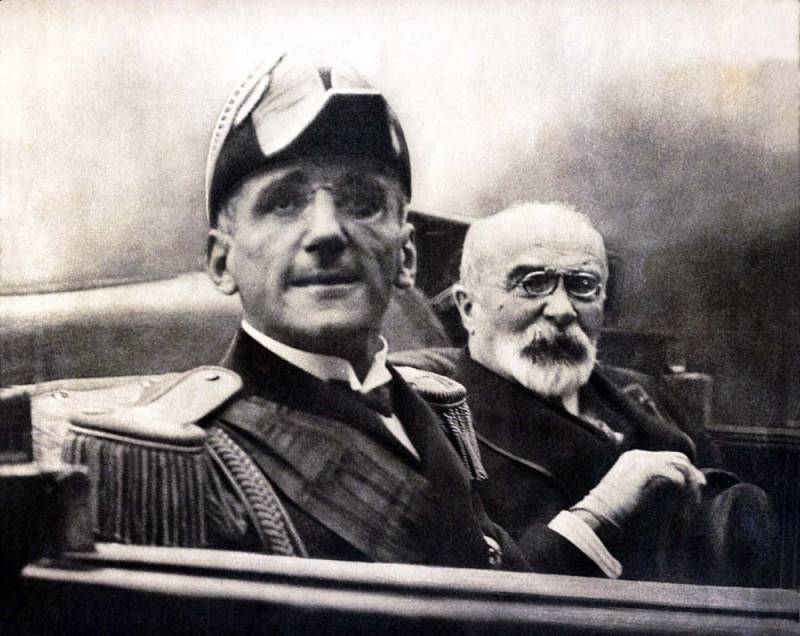
Information